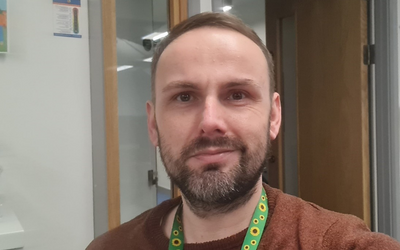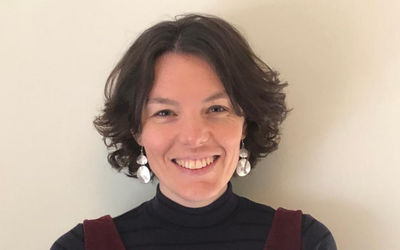You are here
- Home
- External Events and Publications
- Biennial APS Conference
- APS Conference 2023
- Conference programme
- ‘Value, Motivate, Support, Inspire’- Enhancing Undergraduate Student Success at the University of Birmingham
‘Value, Motivate, Support, Inspire’- Enhancing Undergraduate Student Success at the University of Birmingham
Leanne Campbell, Pete Collins, Polly Harper and Jenny Mullins-White, University of Birmingham
Email: l.b.campbell@bham.ac.uk
Presentation
Abstract
The 2020/21 academic year saw the successful launch of the University of Birmingham’s ‘Birmingham Scholar’ programme. The Birmingham Scholar is designed to support undergraduate students from under‐represented backgrounds, identified in the University’s current Access and Participation Plan, to achieve their full academic potential. The programme aims to improve student success by increasing academic and social capital, building confidence, and fostering a sense of belonging for its participants, using an inclusive, whole-institution approach to student support (Thomas et al.,2017).
This presentation gives an overview of the Birmingham Scholar programme in its first two years, detailing its implementation, delivery and evaluation. The wide range of exclusive activities and opportunities offered to Scholars, both centrally and at Faculty level, are presented along with evaluation of their impact as set out in our Student Success Theory of Change. The programme offers participants tailored academic and digital skills training, a dedicated Peer-Assisted Study Scheme to aid transition from school/college to university, graduate employability mentoring and coaching, fully funded international work and study placements, and priority access to a range of personal development opportunities. Scholars also have a team of dedicated staff across the University to support them throughout their entire undergraduate student journey. Student feedback is central to the year-on-year development of the programme, and key feedback themes are also discussed in this session.
We also present preliminary evidence that the Scholar programme may contribute to reducing awarding gaps by improving degree outcomes for Scholars who engage with the programme. Our analysis of degree outcomes for the 2021/22 academic year show that for Scholars who participated in the programme’s activities, Good Honours rates for some under-represented groups were as much as 20 percentage points higher than for those who had not participated. We conclude with recommendations for improving student success programmes of support by better targeting student cohorts, providing a holistic support package in which student wellbeing is central, and by recognising the importance of avoiding a deficit narrative in offers of academic support for under-represented groups.
References
Thomas, L., Hill, M., O’Mahony, J. and Yorke, M., (2017) Supporting Student Success: Strategies for Institutional Change. Final report from the What Works 2 Student Retention & Success Programme, London: Paul Hamlyn Foundation.
Leanne B.M. Campbell
Head of Learning Enhancement (Student Success), University of Birmingham
Leanne is Head of Learning Enhancement (Student Success) within the Academic and Digital Skills Centre in Library Services at the University of Birmingham. She has a background in Widening Participation research and evaluation, and also worked in HE Strategic Planning for over a decade before moving to Student Services to establish and coordinate the Birmingham Scholar programme. She manages an expert team of academic skills advisors within the University Library and is responsible for student success support for under-represented groups, focusing on target groups identified in Birmingham’s Access and Participation Plan.
Peter Collins
Participation and Engagement Manager (Student EDI), University of Birmingham
As the Participation and Engagement Manager, Pete works closely with the College Coordinators and a team of student assistants to manage the EDI ambassador programme, Birmingham Scholar programme, and online EDI course development. Pete also attends EDI meetings within the Colleges and looks for ways to generate more connections across the University. Pete has a background in television, consultancy and autism awareness.
Jenny Mullins-White
Careers Consultant, University of Birmingham
Jenny is an experienced Careers Consultant with nine years’ experience in Higher Education and eleven years working in schools, colleges and education business partnerships. She currently works in the Careers Network at the University of Birmingham supporting students and graduates from the College of Medical and Dental Sciences, and the wider University community. She also delivers pre-entry Careers activities in partnership with the University’s Outreach team and runs the University’s Impact Challenge and Pathways to Careers programme. Jenny is an accredited MBTI and Strengths Profile practitioner, was the 2008 winner at the ICG National Career Awards and is the author of the book What Rocks Your World.
Polly Harper
Academic Transition Officer, University of Birmingham
Polly has worked as an Academic Transition Officer at the University of Birmingham within Library Services since 2020. Her role is based within the Academic and Digital Skills Centre, focussing on supporting student transition to university, through academic skills and peer support. She also particularly supports the University’s most under-represented students through the Birmingham Scholar enhanced academic skills programme. Prior to this role, Polly worked as a Library Engagement Advisor at the University of Birmingham.



